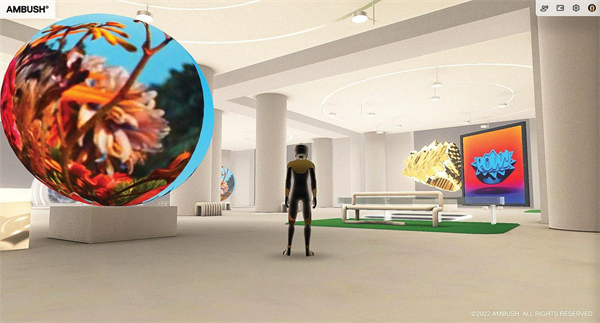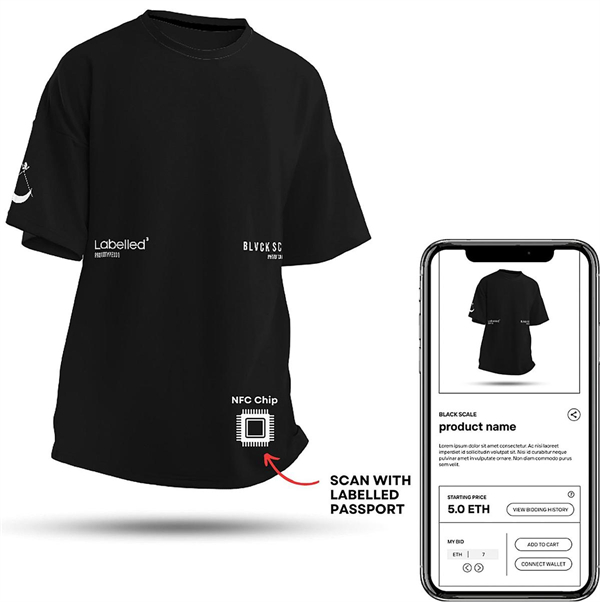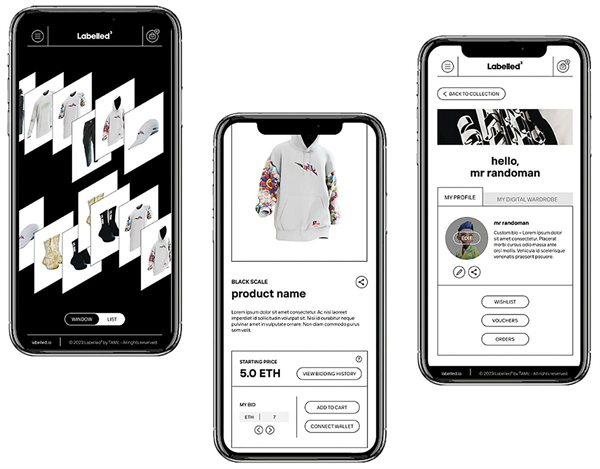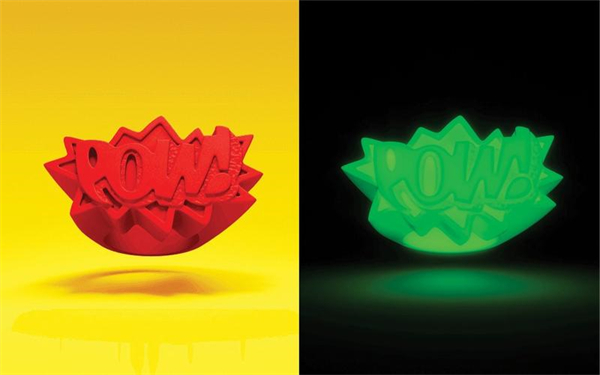
- Home
- Media Center
-
Events
- Wuzhen Summit
- Regional Forums
- Practice Cases of Jointly Building a Community with a Shared Future in Cyberspace
- World Internet Conference Awards for Pioneering Science and Technology
- The Light of Internet Expo
- Straight to Wuzhen Competition
- Global Youth Leadership Program
- WIC Distinguished Contribution Award
- Membership
- Research & Cooperation
- Digital Academy
-
Reports
- Collection of cases on Jointly Building a Community with a Shared Future in Cyberspace
- Collection of Shortlisted Achievements of World Internet Conference Awards for Pioneering Science and Technology
- Reports on Artificial Intelligence
- Reports on Cross—Border E—Commerce
- Reports on Data
- Outcomes of Think Tank Cooperation Program
- Series on Sovereignty in Cyberspace Theory and Practice
- Other Achievements
- About WIC
- 中文 | EN

Web of opportunities for big spenders
As Web3 technologies get more sophisticated, buying digital products is back in fashion. However, it might be a while before seasoned collectors abandon Web 2.0 altogether. Gennady Oreshkin reports.

Japanese streetwear brand Ambush owns a space in the metaverse. It offers "phygital" retail experiences, as well as opportunities to access exclusive content such as runway shows and behind-the-scenes videos. [PHOTO PROVIDED TO CHINA DAILY]
The NFT (non-fungible tokens) market suffered a setback in 2022, and it had begun to look like collectors were losing interest in them. Recently, however, these cryptographic assets bearing unique identification codes seem to have resurfaced, riding on the wings of the increasingly influential Web3 - a new generation of the internet comprising open-source apps and powered by blockchain and decentralized finance (DeFi). A white paper published by Web3 platform Metav.rs speculates that by 2030, this brave new dimension could be worth $81.5 billion. While most art and luxury items dealers still rely heavily on Web 2.0 (think Instagram and Facebook), those not averse to taking risks are venturing into the web's new frontier.
How is Web3 an improvement on Web 2.0? While social media marketing platforms charge advertising revenue from those using it for profit, Web3 allows traders to make money without having to pay a cut to third parties.

Japanese streetwear brand Ambush owns a space in the metaverse. It offers "phygital" retail experiences, as well as opportunities to access exclusive content such as runway shows and behind-the-scenes videos. [PHOTO PROVIDED TO CHINA DAILY]
Also, as Cham Ho, a seasoned NFT collector and consultant at the Web3-focused tech company Alter Horizons, points out, Web3 users can take advantage of DeFi to secure loans to buy luxury products under a buy-now-pay-later plan. It's a world apart from what buying and selling on Web 2.0 looks like.
However, it's early days yet, and most collectors open to giving Web3 a shot see no reason why they should abandon Web 2.0 platforms altogether. Ho says a hybrid model that doesn't necessarily have all the features of Web3 should do for now. "May the best customer experience win," he adds.

Following a trial, Hermès secured a permanent ban on the sale of MetaBirkin" NFTs as they were found to be in violation of the brand's trademark rights. [PHOTO PROVIDED TO CHINA DAILY]
What's in a label?
The enabling features of Web3 have resulted in a rebound of the NFT market.
"I have purchased over a hundred NFTs - from land on the Sandbox metaverse to National Basketball Association collectibles," Ho reveals.
He agrees, however, that it cannot be said with certainty if the NFTs in his possession will appreciate in value, going forward. "The value of an NFT is what we as a society put on them," he says, adding that collectors are drawn to these digital assets for the same reason as they are to branded products in the physical realm - because it feels cool to own a piece.

"Phygital" concept store Labelled³ collaborated with streetwear brand Black Scale to launch a limited-edition T-shirt range, with an NFT integrated into the design of each piece. [PHOTO PROVIDED TO CHINA DAILY]

"Phygital" concept store Labelled³ collaborated with streetwear brand Black Scale to launch a limited-edition T-shirt range, with an NFT integrated into the design of each piece. [PHOTO PROVIDED TO CHINA DAILY]
Labelled³ - which calls itself "the world's first phygital concept store" - offers both physical and digital products and fosters community engagement. Using "labeled passports", customers can avail of personalized product recommendations and promotions.
The platform's CEO, Shawn Lim, argues that their decentralized system ensures transparent transactions, eliminates counterfeit items, and builds trust between customers and retailers. The system also supports secondary trading of products on other Web3 marketplaces. Retailers earn a royalty from such transactions, while customers earn tokens in return for their purchases and engagement. Lim says the goal is to create an engaged user community that, in turn, attracts more people to the platform.

The platform's COO, Nikolai Kea, says an embedded NFT can help to prove the authenticity of the product. [PHOTO PROVIDED TO CHINA DAILY]
Labelled³ collaborated with streetwear brand Black Scale to launch a limited-edition T-shirt range, with an NFT integrated into the design of each piece. The platform's COO, Nikolai Kea, explains that "each T-shirt has a physically backed token seamlessly embedded, further enhancing its value and exclusivity". In other words, each physical piece comes with a unique digital token that makes it traceable and impossible to copy.
Though he himself is actively engaged in developing "phygital" items together with various vendors, Kea feels most such products circulating in the market are gimmicky. However, when done right, an embedded NFT "could, potentially, be a good way to help prove the authenticity of the product," he points out.

Collectors of Ambush's POW! NFT have earned the privilege of being invited to exclusive events hosted by the clothing brand. [PHOTOS PROVIDED TO CHINA DAILY]
Partying with the jet set
Luxury giants have embraced NFT, unsurprisingly, given that finding newer ways of driving customer engagement is part of their remit. Pierre-Nicolas Hurstel, CEO of Web3 solutions company Arianee - which boasts a portfolio of collaborations with heavyweights such as L'Oreal, Breitling and the Richemont group - recommends that luxury brands consider exploring innovative ways of retailing their physical merchandise on Web3.
A fine example of successful physical product retail via Web3 is the Japanese streetwear brand Ambush, which owns a space in the metaverse called Ambush Silver Fctry. It offers "phygital" retail experiences along with opportunities to explore exclusive content - campaign visuals, runway shows, behind-the-scenes videos, and so on. Ambush NFT owners enjoy certain members' privileges, including access to the brand's exclusive events.

RainbowSue "phygital" figurines marketed by Labelled³. [PHOTO PROVIDED TO CHINA DAILY]

RainbowSue "phygital" figurines marketed by Labelled³. [PHOTO PROVIDED TO CHINA DAILY]
Ambush's creative director and co-founder, Yoon Ahn, visited Hong Kong in March to promote the brand's new store at The Landmark. Streetwear influencer and self-proclaimed "sneakers historian" Rika Sai scored an invitation to the event, having previously bought NFTs released by the brand. Sai says she is into picking up NFTs because it's "a new type of investment".
She has wondered if NFTs are ultimately a marketing strategy - egging people on to visit physical stores by offering them so-called privileged access.
If it indeed is, Sai is not complaining. "I bought Ambush's POW! NFT as soon as it came out. As a result, I began getting invited to all these events, where I met Yoon and got to check out the merchandise in person."

Shawn Lim, CEO of Labelled³, says the platform guarantees transparent transactions. [PHOTO PROVIDED TO CHINA DAILY]
A work in progress
If Web3 is about democratizing the digital space, there seems to be an inherent conflict in using the space to retail goods that most people find unaffordable. As Sai confirms, often the lure of NFTs launched by luxury brands is that they serve as tickets to exclusive clubs in the metaverse - a digital-world version of the boutique stores for ultrahigh-net-worth customers that Chanel plans to open soon in Guangzhou and Shenzhen.
The lack of regulations makes shopping on Web3 a tricky business. When Mason Rothschild created NFTs, which bore a stark resemblance to the iconic Herms handbags, the French brand accused the digital artist of copyright infringement, and a nine-person jury found him guilty. The incident served as a wake-up call for the likes of Gucci, Prada and Ralph Lauren, which are trying to stop digital appropriation of their products and brand names at any cost. While it is possible to secure trademarking across digital realms, there might be legal loopholes that will become apparent only when someone tries to take advantage of them.

NFT fashion platform Wear has launched a range of digital accessories. [PHOTO PROVIDED TO CHINA DAILY]

Nick Jaden Lau, founder of Wear, says in terms of technology, the Web3 space is still in a primitive stage. [PHOTO PROVIDED TO CHINA DAILY]
The metaverse remains a collection of separate, mostly privately owned, microcosms, lacking the infrastructure that would connect them. "Right now it's still low-fidelity," says Nick Jaden Lau, founder of Wear - an NFT fashion platform. He says the limited appeal of initiatives like Metaverse Fashion Week, whose second edition was held in March, is owed to their primitive interface.
In the age of experiential retail, customer engagement does not depend solely on the product on sale. Hence brands are perennially on the lookout for novel means of buying and selling to attract customers. And though Web3 has been pitched as a game-changer, collectors of luxury items are still treading with caution.

The World Internet Conference (WIC) was established as an international organization on July 12, 2022, headquartered in Beijing, China. It was jointly initiated by Global System for Mobile Communication Association (GSMA), National Computer Network Emergency Response Technical Team/Coordination Center of China (CNCERT), China Internet Network Information Center (CNNIC), Alibaba Group, Tencent, and Zhijiang Lab.





